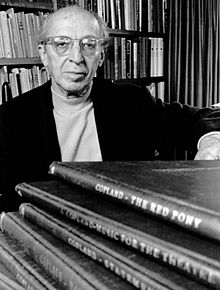[contextly_auto_sidebar id=”U0Diha6KNzqSf3E00pDolCNSLLKJwBcT”]
THESE days I’m working on a series about commissioning new music — and some of the news is good, offering more and different kinds of options to composers and audiences alike. But this Guardian piece recounting a survey of British composers reminds me how complex, wide-ranging and sometimes depressing the field of composing classical music can be.
One sobering part of the report: The average fee for a music commission was 1,392 pounds. And the vast majority of composers surveyed saw their earnings going down, and about two-thirds said commissions were not a significant part of their income. (These people, by the way, are composers.)
Here’s how the Susanna Eastburn of Brit agency Sound and Music begins her piece:
If we believe that music is a living artform then it stands to reason that the creation of new music is vital to its current and future health. However, professional composers are being asked to create new music for very little money in conditions that are too often inadequate. As a sector we have some hard questions to ask ourselves about our priorities.
I’ll be writing about commissioning in all its dimensions over the next few months.


Scott, do you think it’s quite as bad for composers in the States? If nothing else, I really get the feeling that the new-music scene here is rs rather healthier than in the UK – especially here in New York.
Given what this British data shows, I sure hope so!
But who is in a position to commission new work? And who needs it? I don’t mean to be flip. But traditionally music was written because it was needed. It was often written to order for the Church or for a wealthy patron. When classical music had wide popularity, new music was a draw for orchestras. But what need does contemporary classical music fill?
I agree that it’s sad that composers don’t make money from their music, but it is fair to ask who would want to buy it.
Two thoughts: Audiences need new music, and classical music as an art form needs it.
Could it be that classical music was popular, as you say, in part because it was seen as a living art form with new pieces appearing regularly?
Those are important and interesting questions. But the mundane economic questions are interesting too, as suggested by the piece you link to. One can read Susanna Eastburn’s article and conclude that an awful lot of new music is being written. (466 composers each producing 2.65 commissions means 1,235 new works a year.) But who is it for? How well do audiences respond? What becomes of it all? Is Britain awash in new music that everyone is talking about and listening to on the radio or downloading on Spotify? Or are these underpaid composers just dropping stones down a well?
To put it bluntly, what is the market for new music? If the demand is small, it seems to me that the low remuneration is not unreasonable.
By the way, 466 active composers seems like a high number to me. If they are all chasing the same small number of commissions, then that too would contribute to the low rewards.
I had some of these same thoughts… And the larger issue of creating a healthy environment in which new music thrives and finds it audiences is esp important — that will be the subject of a pretty large piece I’ve just begun to research.